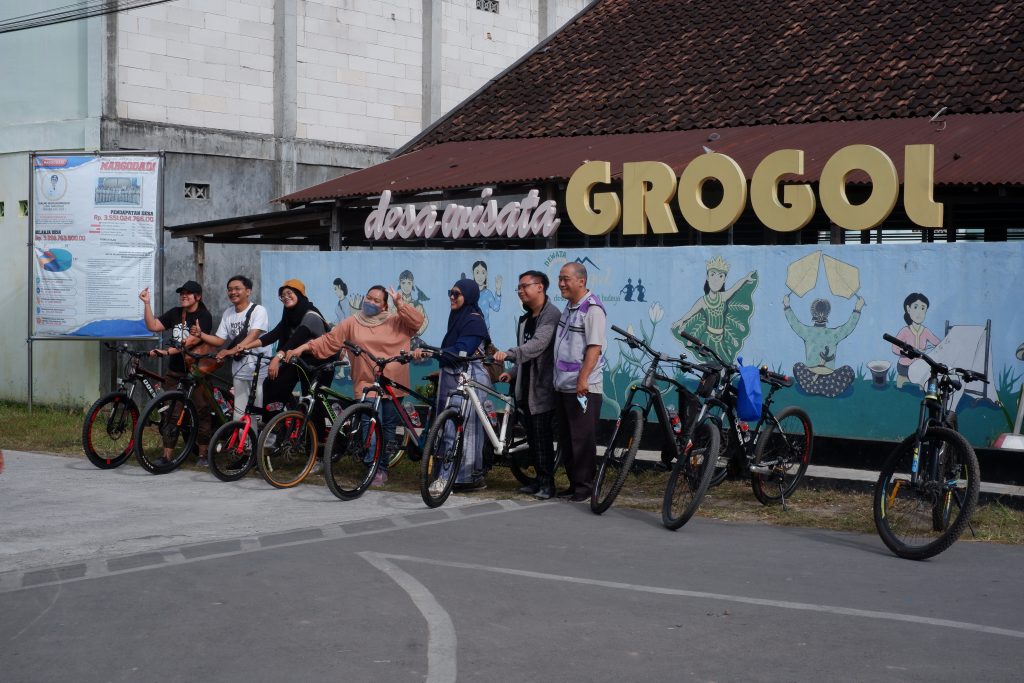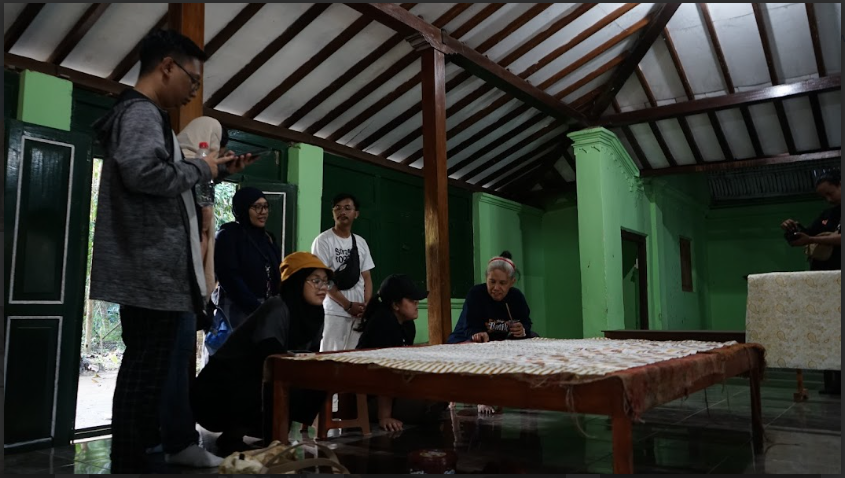
Following the results of the initial Training of Trainers, the PKM team from the Master’s Program in KBM returned to Margodadi Village for a follow-up field survey. On Saturday (July 20), five master’s students and the KBM program manager cycled around Margodadi Village to observe locations that could potentially be developed into tourist attractions. By directly touring the area on bicycles, the team aimed to identify potential tourist routes and design thematic trails that would attract visitors.
During their cycling tour, the team visited several cultural tourism spots such as an art studio, Tuk Sibedug (a local spring), and a batik production site. At the art studio, they discussed with local cultural experts who produce gamelan instruments and rent out traditional dance costumes. The journey continued as the team cycled to Tuk Sibedug, a spring in Margodadi Village that serves as the center of the annual Kirab Budaya (Cultural Procession). However, it seems that this year’s Kirab Budaya might not take place due to the nearby toll road construction, which has made the environment unsuitable for the traditional celebration. After cycling through the dusty Jogja-Solo toll road construction area, the team visited the batik production site, where some students had the chance to apply colors to pre-patterned, wax-coated fabrics. In addition to cycling around the village, the PKM S2 KBM team also had the opportunity to make wayang suket, puppets made from dried grass.

In addition to observing cultural tourism potential, the team also visited several locations that could be developed as agro-tourism sites. First, the team visited a fish pond owned by Dukuh Grogol, which was managed in a ditch in front of a resident’s house. The dukuh (village head) shared his concerns about how the toll road construction had not brought many positive impacts for the locals, citing issues such as noise pollution from the project, which continued late into the night, disturbing residents’ rest, and the collapse of a water embankment that caused damage to the fish pond business. Despite repairs being made, the embankment broke again for the second time, leaving the villagers frustrated and indifferent to the recurring damage. The team also inspected a self-managed waste management system, an important innovation amid the ongoing waste issues in Yogyakarta. Mirza, the manager, guided the team through the maggot cultivation used to decompose organic waste from the residents. He also mentioned that the waste management system was still small-scale and not yet sufficient to fully support the needs of the Margodadi residents.
The survey results were later discussed in a meeting held on Tuesday (August 13) to finalize the program plan and task distribution. During the meeting, it was decided that Mukhammad Abdul Aziz, S.S., and Leonardo B. Yudhapratama, S.S., would be in charge of the Social Media Content Workshop Program, while Shafira Karima Ardanareswari, S.S., Abd. Haris Nusa Bela, S.S., and Rizky Angga Pratama, S.Ant., would be responsible for the Thematic Tourism Map Creation Program for Margodadi Village.
SDG 1 (No Poverty)
